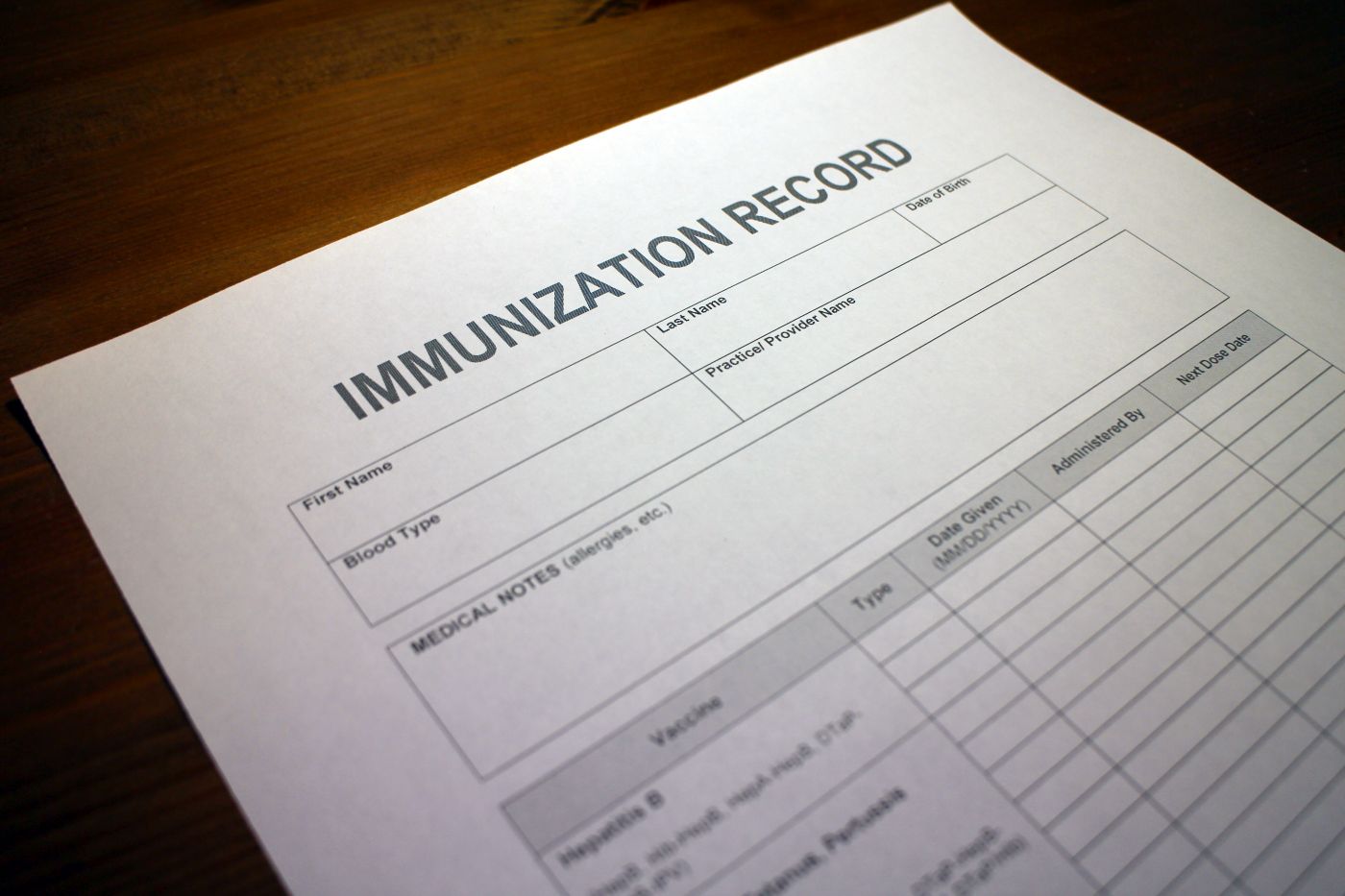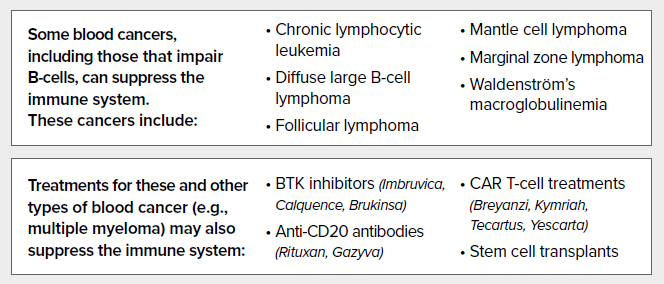Many types of blood cancer can reduce the ability to fight infections. Blood cancer, as well as its treatment, can also affect the level or length of protection someone gets from vaccinations. Patients should not assume that they will have the full protection of the vaccine even after being fully vaccinated.
Even if vaccines don’t always completely protect you, they can minimize the risk of the worst outcomes, including hospitalization and death. So, it’s important to talk to your healthcare team often about your immune health.
Blood cancer patients may need to get vaccines at different intervals or more frequently. Some vaccines, like the chicken pox vaccine, may be off limits to patients because it is a live vaccine versus an inactivated vaccine.
LLS medical experts support vaccination as an important part of patient care and they encourage patients to talk to the oncology team about which vaccines are right for them.
Flu Vaccine
The U.S. Centers for Disease Control and Prevention (CDC) recommends seasonal influenza (flu) shots for cancer patients and survivors and anyone who has contact with a cancer patient. Unless contraindicated by your oncologist, LLS encourages blood cancer patients and survivors to get their flu shot every year.
Cancer patients and survivors should get the flu shot, not the nasal mist form of the flu vaccine. Shots are safe for people with compromised immune systems because they're made from inactivated virus; the flu mist is made from a live but weakened virus.
The ideal time to be vaccinated for seasonal flu is in the fall as soon as the shot becomes available, as it takes about two weeks for the vaccination to begin providing protection. Before you get the shot, let the person who is providing the vaccine know about any allergies you have and any previous reactions to a flu shot.
Flu Shots and Vaccines for Stem Cell Transplant Patients
Flu shots are recommended for bone marrow, stem cell, and cord blood transplant survivors. Patients should talk to their doctor about timing. The flu shot is also recommended for others living or working in the household.
After transplantation, patients lose the protection from the vaccines that they received as children. All transplant patients need to receive childhood vaccines again once their immune systems have recovered. Autologous transplant recipients typically receive inactivated vaccines starting 6 months after transplant and live vaccines 24 months after transplant. For patients who have undergone allogeneic transplants, doctors may wait until 12 months after transplantation to start vaccinating patients, or until patients are off immunosuppressive therapy. Patients should follow their transplant doctor’s recommended schedule for vaccinations
For more information about the flu and special considerations for people who have cancer, visit the CDC's Cancer and Flu page.
Pneumococcal Pneumonia Vaccine
Ask your doctor about other vaccinations you may need, such as immunization that protects against pneumococcal infections. There are two types of pneumococcal vaccines available for adults. Adults who have a blood cancer diagnosis generally need to receive both vaccines. Talk to your doctor for more information.
COVID-19 Vaccine
Talk to your healthcare team about the COVID-19 vaccine. Research has been clear; if you have cancer, COVID-19 can make you very sick. Treatments for many types of cancer can weaken your body's ability to fight off infections. Studies show that having a history of cancer may also increase your risk of serious illness and death from COVID-19.
Other Vaccines
Your vaccine schedule depends on several factors, including the treatment you're receiving and whether you're in remission. For example, people with blood cancer who are undergoing chemotherapy or radiation therapy should avoid getting live vaccines but can receive inactivated vaccines.
Tips for Preventing Flu and Respiratory Infections
Take the following precautions to help prevent the flu and respiratory infections, both for you and the people around you:
- Contact your primary care doctor and oncologist to see if an antiviral drug is recommended for you.
- Avoid contact with people who have the flu or respiratory infections, which are spread mainly by person-to-person contact. The CDC recommends that people who are coughing and sneezing stay home from work or school and limit contact with others to keep from infecting them.
- Follow general public health advice about avoiding crowds.
- Cover your nose and mouth with a tissue when you cough or sneeze. Throw the tissue away right after you use it.
- Wash your hands often with soap and water, especially after you cough or sneeze. If you don't have access to soap and water, use alcohol-based hand cleaners.
- Reduce the spread of germs by avoiding touching your eyes, nose, or mouth.
- As a precaution, store a supply of food, medicines, alcohol-based hand rubs and other essential supplies.
Other Resources

